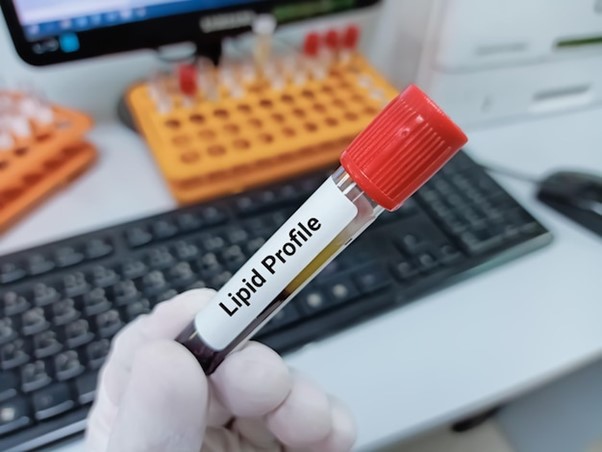Staying healthy is a continuous effort, and an important part of this process is keeping an eye on your cholesterol levels. One of the best ways to do this is through a lipid profile test. In this article, we will explain what a lipid profile test is, why it’s important, and how to get ready for it.
What Is a Lipid Profile Test?
A lipid profile test is a blood examination used to evaluate different types of fats (lipids) which are present in your blood. This test includes several key components, such as:
- Total Cholesterol: This value indicates the overall amount of cholesterol in your blood.
- Triglycerides: These are another form of fat found in the blood. When levels of triglycerides are too high, they can also increase the risk of heart disease.
- Low-Density Lipoprotein (LDL): This value is referred to as “bad” cholesterol, elevated levels of LDL can increase the risk of developing heart disease.
- High-Density Lipoprotein (HDL): Known as “good” cholesterol, HDL plays an important role in transporting cholesterol away from the arteries, providing protective health benefits.
Why Is A Lipid Profile Test Important?
Gaining insight into your lipid levels is vital for supporting cardiovascular health. Elevated levels of LDL cholesterol and triglycerides can lead to plaque formation in the arteries, significantly increasing the risk of strokes and heart attacks. Regular lipid testing enables you and your healthcare professional to identify potential health issues early, facilitating timely interventions to protect your heart.
When Should You Schedule a Lipid Profile Test?
Adults are generally recommended to have a lipid profile test every 4 to 6 years, beginning at age 20. However, if you have risk factors like obesity, a family history of heart disease, or high blood pressure, your healthcare provider may advise more frequent testing.
How Can You Prepare for a Lipid Profile Test?
You are expected to fast for 9 to 12 hours prior to the test in order to ensure accurate results, meaning no food or beverages except for water. It’s also essential to inform your healthcare team about any medications or supplements you are taking, as these can affect lipid levels.
What Happens After the Test?
Once your blood sample is collected, it is sent to a lab for analysis. You can expect to receive your results within a couple of days. Your healthcare provider will review the findings and discuss any lifestyle changes or treatments that may be necessary.
How Can You Enhance Your Lipid Levels?
Making a few straightforward lifestyle changes can greatly improve your cholesterol levels. Adopting a heart-healthy diet, engaging in regular physical activity, and quitting smoking can all help you achieve better lipid profiles. If necessary, your doctor may discuss pharmacological options.
Take Control of Your Health Today!
Understanding your cholesterol levels is a crucial step towards achieving a better health. At LifeQuest Diagnostics, we provide comprehensive lipid profile testing to keep you informed about your cardiovascular wellness. Schedule your test today and embark on the journey to a healthier you!

